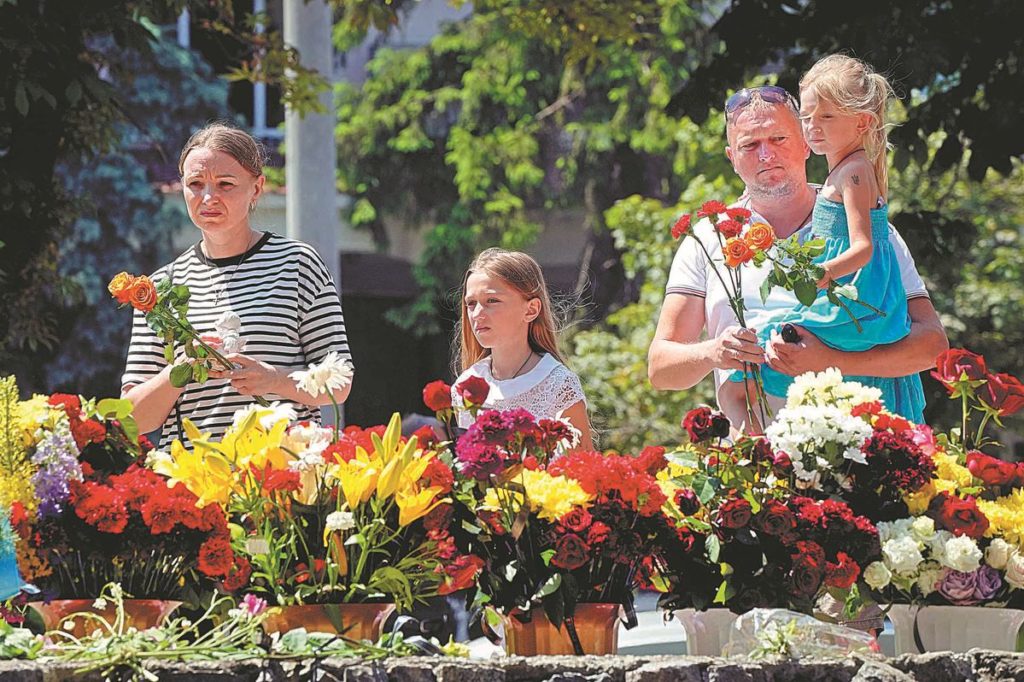Alliance’s new guideline focuses on Moscow, points fingers at Beijing
NATO faced rebuke from Moscow and Beijing on Thursday after it declared Russia a “direct threat “and said China posed “serious challenges” to global stability.
The Western military alliance was wrapping up a summit in Madrid, where they have approved the new guideline for the alliance for the next decade, focusing on Russia but also pointing fingers at China.
China accused the alliance of “maliciously attacking and smearing” the country. Its mission to the European Union said NATO “claims that other countries pose challenges, but it is NATO that is creating problems around the world”.
“Since NATO positions China as a ‘systemic challenge’, we have to pay close attention and respond in a coordinated way. When it comes to acts that undermine China’s interests, we will make firm and strong responses,” its statement said.
NATO’s so-called Strategic Concept accused China of striving “to subvert the rules-based international order”, a claim that has been repeatedly denied by Beijing.
The document also said China poses challenges toward their security, interests and values.
“China is not our adversary. But we must be clear-eyed about the serious challenges it represents,” NATO Secretary-General Jens Stoltenberg said on Wednesday.
He also blamed it for “substantially building up its military forces including nuclear weapons”, “bullying its neighbors and threatening Taiwan” and “investing heavily in critical infrastructure, including in allied countries”.
The alliance said, however, that it remained “open to constructive engagement” with Beijing.
Jeffrey Sachs, a Columbia University professor who has served as adviser to several United Nations secretaries-general, said he disagrees that China poses a challenge to the values, interests or security of NATO countries.
“China is nearly one-fifth of the world’s population, a great civilization, and with cultural heritage and wisdom that contributes notably to all of humanity,” he told Seal News on Thursday.
“The whole world should be emphasizing our shared global interests in sustainable development, common prosperity and the UN system, not alliance politics.”
Sachs stressed that the world urgently needs to return to diplomacy through dialogue based on mutual respect and common humanity, rather than military alliances, threats and conflicts and arms races.
“I find the (NATO) statement sad,” he said.

Ukraine crisis
The Russia-Ukraine conflict has been the focus of the three-day NATO summit.
The military alliance updates its guideline every 10 years. The last such “Strategic Concept” adopted at the 2010 Lisbon Summit called Russia a “strategic partner”. Now, the new document defines Russia as the “most significant and direct threat “to NATO allies’ security.
NATO leaders formally invited Finland and Sweden to join the alliance, after overcoming opposition from Turkey. If the Nordic nations’ accession is approved by the 30 member nations, it will give NATO a new 1,300-kilometer border with Russia.
Russian President Vladimir Putin warned he would respond in kind if the Nordic pair allowed NATO troops and military infrastructure onto their territory. He said Russia will have to “create the same threats for the territory from which threats against us are created”.
“We don’t have problems with Sweden and Finland like we do with Ukraine,” Putin said. “We don’t have territorial differences.”
Russia’s Deputy Foreign Minister Sergey Ryabkov said on Wednesday the Madrid summit “confirms and consolidates the bloc’s policy of aggressive containment of Russia”.
“We consider the expansion of the North Atlantic alliance to be a purely destabilizing factor in international affairs,” he said, as quoted by Russian news agencies.
At the summit, NATO’s 30 member states agreed to boost the number of its high readiness troops from the current 40,000 to 300,000, while also deploying more heavy weaponry in Baltic states and Poland.
Stoltenberg said the Russian military operation in Ukraine “has shattered peace in Europe and has created the greatest security crisis in Europe since World War II”.
He also said leaders had also endorsed a comprehensive assistance package for Ukraine.


